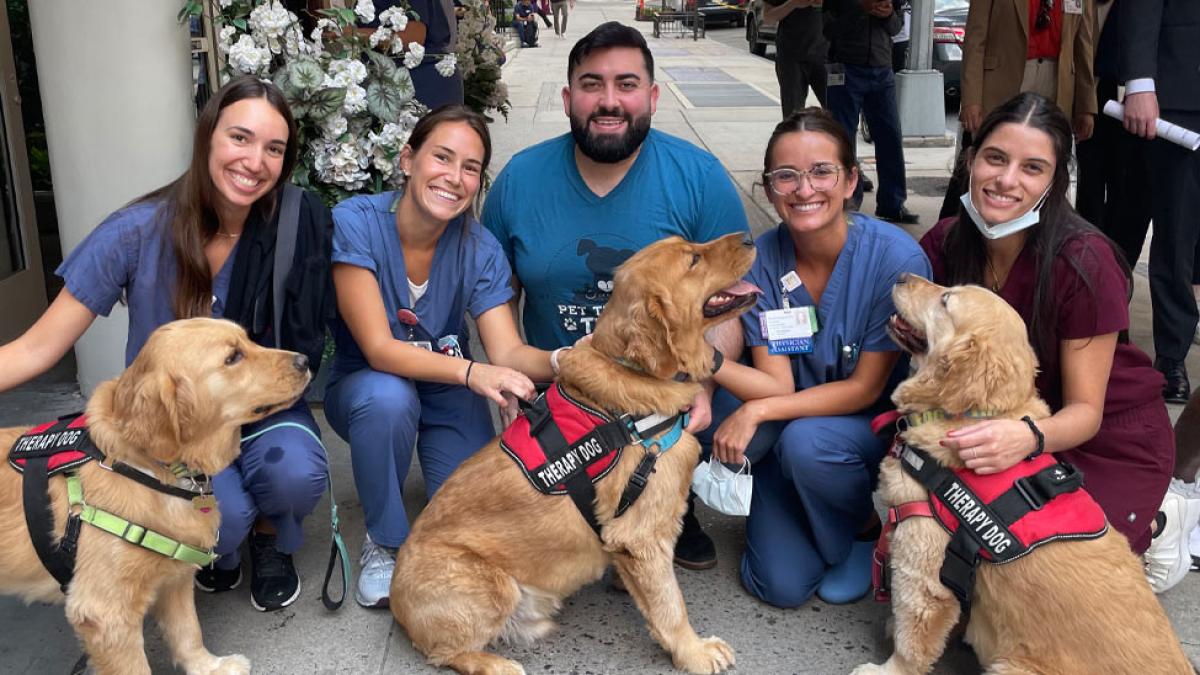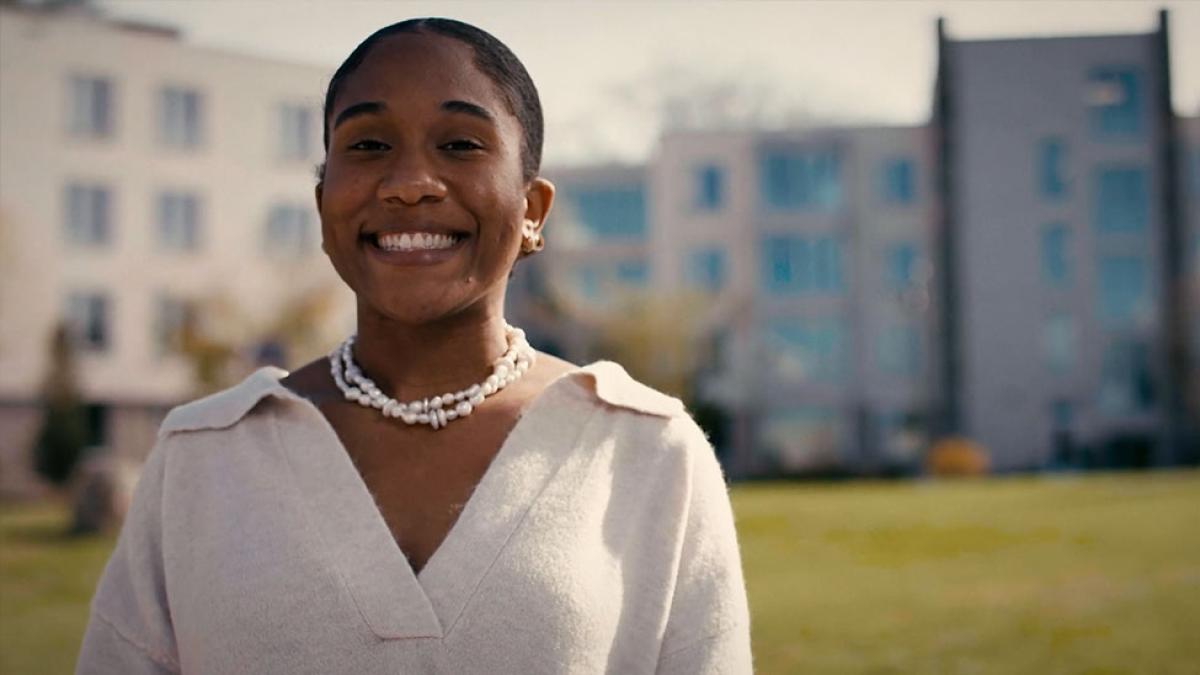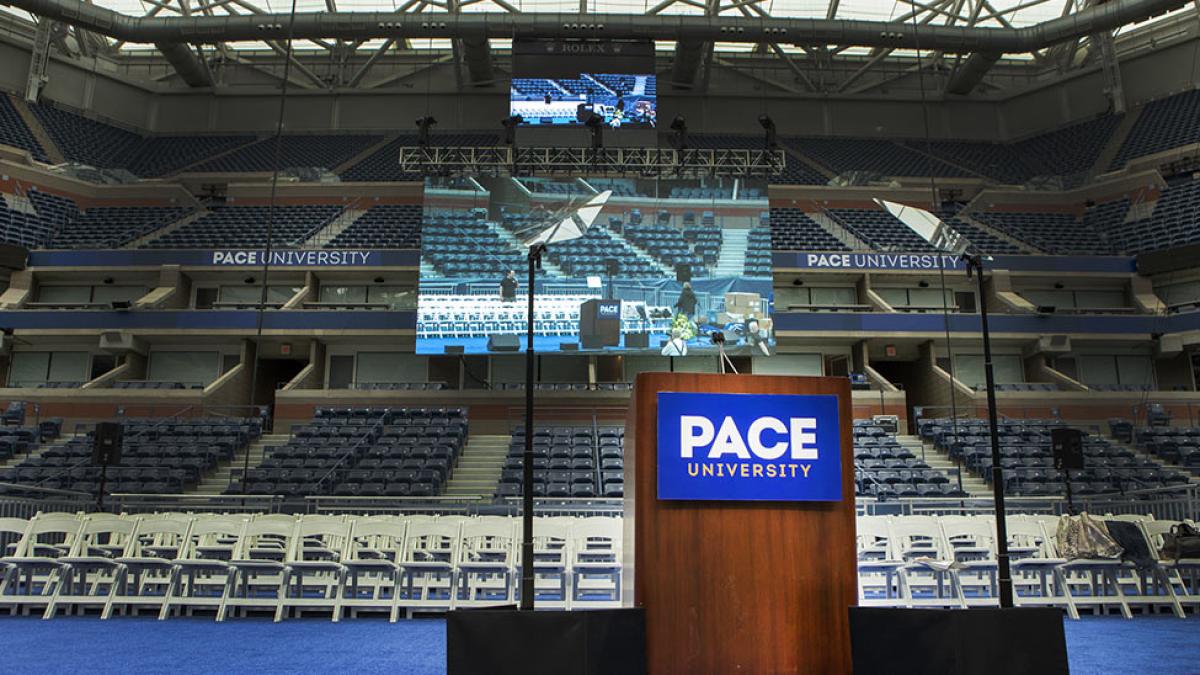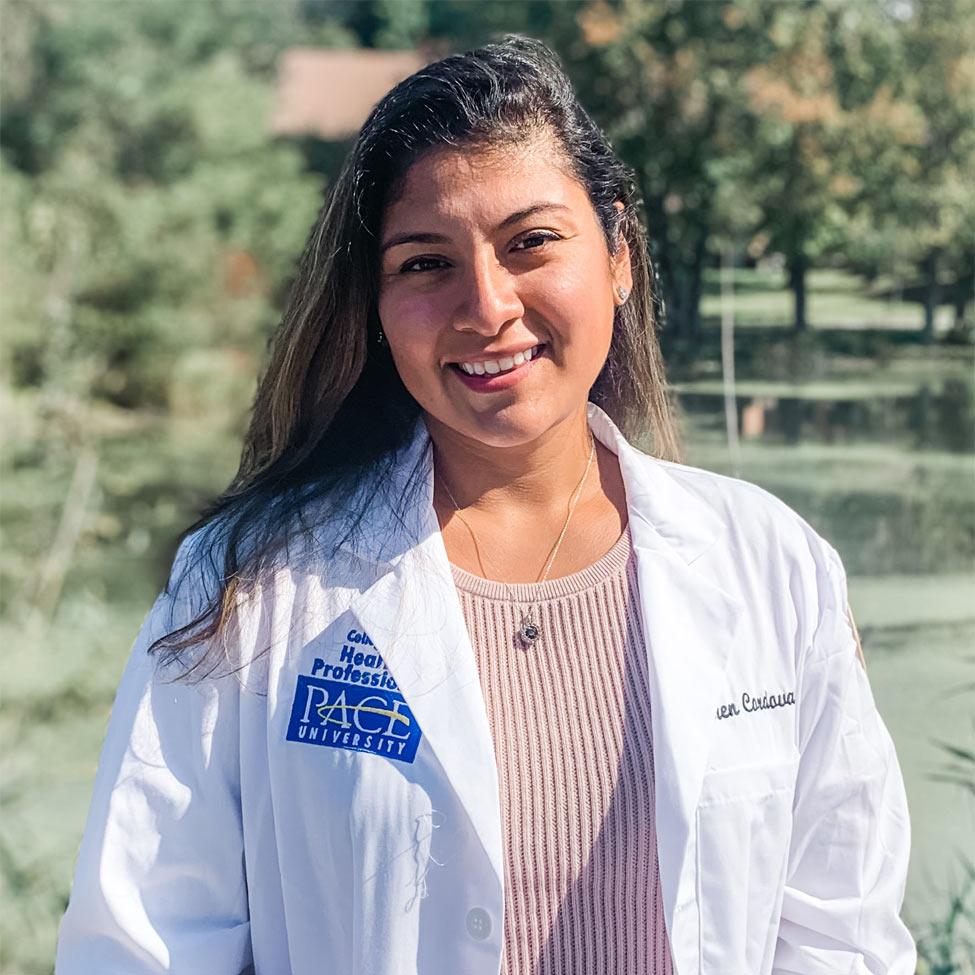
Haub Law’s Sustainable Business Law Hub Partners with Prestigious Firms to Provide Practical Student Internship Experiences and Launches Hub Student Scholars Program
The Elisabeth Haub School of Law at Pace University has launched a series of collaborative paid internship experiences with prestigious firms and companies as part of its new Sustainable Business Law Hub. The school also announces the launch of its newly created Sustainable Business Law Hub Student Scholars Program with the selection of its inaugural class of students.
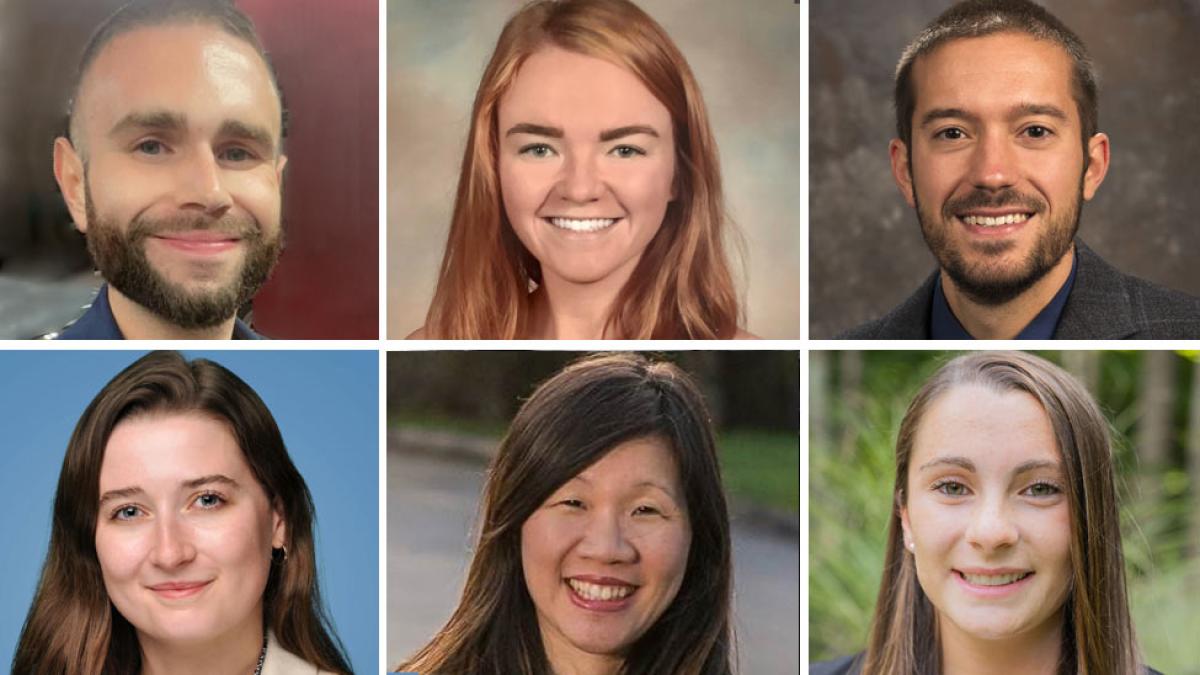
As part of its recently launched Sustainable Business Law Hub, a new initiative through which Haub Law students will be trained to become the first generation of “sustainable business lawyers,” the Elisabeth Haub School of Law at Pace University has collaborated with prestigious firms and companies to offer students paid internship opportunities in their ESG practice. The law firm Paul, Weiss, Rifkind, Wharton & Garrison LLP continues to offer paid internships in their ESG advisory practice. Qualified Haub Law students have had the opportunity to intern with Paul, Weiss every semester since Spring 2021. Additionally, Gibson Dunn and Nestlé have collaborated with Haub Law to launch an innovative ESG Fellowship program to allow a student to participate in a 10-week summer experience program.
“The creation of the Hub has been absolutely transformational in terms of student interest and student placement. Many of our top students are interested in ESG, sustainable business, and the Sustainable Business Law Hub, along with these collaborative firm partnerships will allow students to pursue these interests in a meaningful way,” said Jason Czarnezki, Gilbert and Sarah Kerlin Distinguished Professor of Environmental Law and Associate Dean of Environmental Law Programs and Strategic Initiatives. “The Hub has had the effect of making our students more competitive for ESG and environmental law jobs at these and other major law firms, companies, non-profits, and more.”
Since spring 2021, Paul, Weiss has hosted four Haub Law students and another two will participate throughout the upcoming spring semester. “Students who are selected for internship opportunities at Paul, Weiss are fortunate enough to be supervised by Hub Advisory Board Member, Madhuri Pavamani, who is the Sustainability & ESG Advisory Practice Director at Paul, Weiss,” said Czarnezki. “The opportunity to be supervised and mentored by a leader in the field of sustainability is tremendous. Our students walk away from this experience having learned from innovators and prepared to lead the next generation of ESG lawyers.”
The competitive Gibson Dunn and Nestlé ESG Fellowship program launches in summer 2023. One Hub student per year is chosen to participate in a 10-week paid summer experience that has them start work in Gibson Dunn's Los Angeles office and then be ”seconded” to Nestlé to work with their in-house legal team. “We are fortunate to have great partners who are willing to provide Haub Law students with real experience in an ESG legal practice,” said Achinthi Vithanage, Associate Director of Environmental Law Programs. “Interns work with leading attorneys in the space, gaining insight into the work of both corporate ESG counsel as well as in-house sustainability counsel, while developing the necessary skills to prepare them for a career in sustainable business law.” Anna Marciano Romanella, Vice President, Sustainability, Zone North America Nestlé, and General Counsel & Head of Sustainability, Nespresso USA, is a member of the Hub’s Advisory Board and has been extremely influential in the continued development of the Sustainable Business Law Hub.
Haub Law student, Sam Perlmutter, Class of 2023, served as an intern with Paul, Weiss in spring 2022 as part of the Haub Law Sustainable Business Law Hub, working with the firm’s Sustainability & Environmental, Social & Governance (ESG) Advisory Practice. She said the experience provided her with very useful practical training in applying the law to promote sustainable business practices in the private sector. “As an ESG intern, I worked with the team and helped conduct a human rights impact assessment for a U.S.-based technology company. I also researched and built out a playbook for the ESG team to use on the intersection of current-day, pressing ESG and executive compensation concerns,” she said. “Additionally, I helped the ESG team address the myriad questions from clients regarding the recently proposed SEC rule on climate change disclosures, including comments on the rule and GHG emissions reporting concerns. I am grateful for the opportunity to work towards a new standard of corporate responsibility that includes a focus on economic, social and environmental welfare,” Perlmutter said.
Haub Law is also proud to announce the launch of the Sustainable Business Law Hub Student Scholars Program ("Hub Scholars Program"). The Hub Scholars Program is a key component of the Sustainable Business Law Hub in creating the next generation of sustainable business lawyers. Six students have been selected to serve as the inaugural Sustainable Business Law Hub Student Scholars (“Hub Scholars”) and will benefit from ESG internships at prestigious law firms.
The Sustainable Business Law Hub Scholars Program is a curricular, scholarship, and mentorship program for students pursuing careers in sustainable business law and as ESG lawyers. The highly-selective program is designed for students with outstanding entrance credentials and a well-articulated passion for pursuing a career at the intersection of sustainability, business law, and environmental law. Hub Scholars will have the opportunity to receive practical training and experience in using the law to foster sustainable business practices through an internship/externship experience with an ESG practice group in a law firm, under the guidance of in-house counsel within a corporate entity, or within an NGO/government body working in the ESG space.
Hub Scholars can also take advantage of targeted training workshops and programs that will prepare them for these externship experiences while working closely with a faculty supervisor and a professional mentor in the field to develop their interests and to identify networking and job opportunities. “Our Hub Scholar Program is an important part of our larger vision for the Sustainable Business Law Hub,” said Horace Anderson, Dean of the Elisabeth Haub School of Law at Pace University. “The students selected for this highly competitive program will have the opportunity to hone their expertise in sustainable business law and have opportunities to participate in prestigious ESG internship and externship opportunities with leaders in the field.”
During the course of their studies, students receive curricular guidance that will allow them to receive the Advanced Environmental Law Certificate while pursuing courses relevant to sustainable business law, including the Business Law Path to Practice and the option to pursue an MBA with the Lubin School of Business as part of the joint JD/MBA program. Haub Law also offers new courses on sustainable business law which include topics such as the definition of ESG, corporate responsibility and the triple bottom line; the role of the corporate board in achieving sustainability; social impact investing and ESG ratings; and ESG and climate disclosures, voluntary ESG reporting and risk management. Importantly, Hub Scholars will also have access to a wide network of Haub Law alumni, Lubin alumni, the Hub’s Advisory Board, and subsequent Hub Scholar alumni, who may serve as mentors to new Hub Scholars.
Biographies of Inaugural Class of Hub Student Scholars
Brianna Grimes is a JD candidate at the Elisabeth Haub School of Law at Pace University. She graduated in 2019 from Syracuse University with a BA in Biology. During law school, Brianna has joined many organizations and is currently a Junior Associate on the Pace Environmental Law Review; President of the Environmental Law Society; Vice Chair, Grading and Scoring, for the National Environmental Law Moot Court Competition; and Environmental Law Society Network Student Liaison for the ABA Section of Energy, Environment and Resources’ Marine Resources Committee. This past summer, she worked as a Maritime & International Law Extern at the United States Coast Guard Judge Advocate General in Washington, DC. Next summer, she will be a Summer Associate at Baker Botts in their Washington, DC office.
Brooke Mercaldi is a JD candidate at the Elisabeth Haub School of Law at Pace University. In August 2022, Brooke also began her Master’s degree at Yale where she is a Research Assistant at the Yale Center for Environmental Law and Policy and a participant in the Environmental Protection Clinic at Yale Law School; she is pursuing a Business and the Environment specialization. Brooke earned a Bachelor of Science in Environmental Systems and Sustainability Studies from Southern Connecticut State University in 2020 where she completed her Honors Thesis on the coastal dynamics of the Connecticut shoreline. During her time at Haub Law thus far, Brooke has completed legal internships at the New York State Department of Environmental Conservation, United States District Court in the Southern District of New York, and ACT Commodities Inc. Brooke has also worked in Haub Law’s Land Use Law Center and Global Center for Environmental Legal Studies and is a Research & Writing Editor for the Pace Environmental Law Review.
Maggie Pahl is a JD candidate at the Elisabeth Haub School of Law at Pace University, pursuing an Advanced Certificate in Environmental Law. She has experience working as a legal intern at the John Jay Legal Services Food and Beverage Law Clinic, the Environmental Protection Agency, and the New York State Department of Environmental Conservation. She served as a judicial intern for the Honorable Judge Vera M. Scanlon at the United States District Court, Eastern District of New York. After graduation, she will take the New York State Bar Examination before beginning a one-year clerkship under the Honorable Judge Gary Potters in the New Jersey Superior Court Family Division. After her clerkship term elapses in August 2024, she is interested in entering the ESG field. She is looking forward to being a part of the inaugural class of Hub Student Scholars and further exploring her career options in sustainable business law.
Aric Prazeres is a JD candidate at the Elisabeth Haub School of Law at Pace University. Aric has interned for the Investor Rights Clinic, Judge Halpern at the SDNY, and the Securities and Exchange Commission’s Divisions of Corporation Finance and Enforcement. Before starting law school, he received his MBA and worked for a company that specialized in corporate bartering. Aric is a Senior Associate for Pace Law Review, and recently participated in the St. John’s FINRA 2022 Securities Dispute Resolution Triathlon where his team won first place in the arbitration round. Last year he served as the law school’s Environmental Law Society Energy and Climate Director, and spends much of his time thinking about the role of blockchain and other technologies in creating sustainable business strategies.
Kasama Star is a JD candidate at the Elisabeth Haub School of Law at Pace University. She holds a BS in Human Development and Family Studies from Cornell University and an MBA from NYU Stern School of Business. Prior to law school, Kasama had a career in web development and project management. During her time at law school, she has interned for judges at the Southern District of New York and the Third Circuit, presented on Asian American discrimination, and contributed to pro bono work. She is a productions editor of the Pace Environmental Law Review and has served as president of the Asian American and Pacific Islander Law Student Association and the Immigration Law Society. Last summer, she was a litigation associate at Fenwick & West and an intern for Second Circuit Staff Attorney’s office. This semester she interned at the Securities and Exchange Commission in Corporation Finance.
Christopher Sudol is a JD candidate at the Elisabeth Haub School of Law at Pace University. Christopher received his bachelor's degree in history from Montclair State University, where he also minored in business. As an undergraduate, Christopher focused his studies on the intersection of business and the environment in twentieth-century American business practices. Christopher also has a master's degree in history from the University of Wyoming, where his research focused on the environmental impacts of American colonialism. Throughout law school, Christopher has participated in the Haub Law Food and Farm Business Clinic supporting local and sustainable farmers in various matters, in private law firms forming corporations and drafting organizational documents, and with non-profit organizations contributing to developing their diversity programs and efforts. Christopher is interested in a career that supports sustainable environment, social, and governance business practices to solve important issues of the present and the future. This spring, he will be an intern with Paul, Weiss and gain experience in the areas of sustainability and ESG.
U.S. Senator Elizabeth Warren and Harvard Law Professor and Legal Historian Bruce H. Mann to Receive Honorary Degrees at 2023 Commencement of the Elisabeth Haub School of Law at Pace University
The Elisabeth Haub School of Law at Pace University is pleased to announce that U.S. Senator Elizabeth Warren will deliver the Law School’s commencement address at its 45th Commencement Ceremony, to be held on May 15, 2023 at the USTA Billie Jean King National Tennis Center in Queens. Senator Warren and Harvard Law Professor and Legal Historian Bruce H. Mann will both receive the Doctor of Laws, honoris causa, the highest honor conferred by the Law School, recognizing their lifelong contributions to public service and the legal profession.

The Elisabeth Haub School of Law at Pace University is pleased to announce that U.S. Senator Elizabeth Warren will deliver the Law School’s commencement address at its 45th Commencement Ceremony, to be held on May 15, 2023 at the USTA Billie Jean King National Tennis Center in Queens. Senator Warren and Harvard Law Professor and Legal Historian Bruce H. Mann will both receive the Doctor of Laws, honoris causa, the highest honor conferred by the Law School, recognizing their lifelong contributions to public service and the legal profession.
“We are honored that Senator Warren and Professor Mann will join the Law School’s 2023 Commencement Ceremony,” said Horace E. Anderson Jr., Dean of the Elisabeth Haub School of Law. “Senator Warren has had a distinguished career as a law professor and, in her current role as senior Senator from Massachusetts, is one of the nation’s leading voices advocating for common sense policies to support the middle class. Professor Mann is an award-winning professor and legal scholar whose work has impacted many lives, including my own law school journey. Both have made significant individual contributions to the legal profession during their careers. Together, they represent the diverse paths and opportunities that are available to those who choose to use their legal education to pursue their passions and make an impact on society.”
Senator Elizabeth Warren was elected to the United States Senate on November 6, 2012, by the people of Massachusetts, becoming the first woman to represent the Commonwealth in the Senate. She is recognized as one of the nation's top experts on bankruptcy and the financial pressures facing middle class families. She is widely credited for the creative thinking and relentless persistence that led to the creation of the Consumer Financial Protection Bureau.
In the aftermath of the 2008 financial crisis, Senator Warren served as Chair of the Congressional Oversight Panel for the Troubled Asset Relief Program (TARP). Her independent and tireless efforts to protect taxpayers, to promote stability in the financial services sector, and to ensure tough oversight of both the Bush and Obama Administrations won praise from both sides of the aisle.
Prior to her election to the United States Senate, Senator Warren was a law professor for more than 30 years, including nearly 20 years as the Leo Gottlieb Professor of Law at Harvard Law School. The graduating class at Harvard twice recognized her with the Sacks-Freund Award for excellence in teaching. She taught courses on commercial law, contracts, and bankruptcy and wrote more than a hundred articles and ten books, including three national best-sellers, A Fighting Chance, The Two-Income Trap, and All Your Worth. National Law Journal named her one of the Most Influential Lawyers of the Decade, TIME Magazine has named her one of the 100 most influential people in the world four times, and she has been honored by the Massachusetts Women's Bar Association with the Lelia J. Robinson Award.
Senator Warren is a graduate of the University of Houston and received her law degree from Rutgers School of Law.
Professor Bruce H. Mann is an American legal scholar and legal historian who has been teaching at Harvard Law School since 2006, where he is the Carl F. Schipper, Jr. Professor of Law. He teaches courses in American Legal History and Property. His research focuses on the relationship among legal, social, and economic change in the American Revolutionary era.
Professor Mann’s academic career includes visiting or permanent professor positions at Washington University in St. Louis, University of Connecticut School of Law, University of Houston Law Center, University of Texas School of Law, University of Michigan Law School, University of Pennsylvania Law School, and Princeton University. He has received five teaching awards—one at Washington University and four at the University of Pennsylvania, including the university-wide Christian R. and Mary F. Lindback Foundation Award for Distinguished Teaching.
Professor Mann is the author of Republic of Debtors: Bankruptcy in the Age of American Independence (2002), which received the SHEAR Book Prize from the Society for Historians of the Early American Republic, the Littleton-Griswold Prize from the American Historical Association, and the J. Willard Hurst Prize from the Law and Society Association. He is also the author of Neighbors and Strangers: Law and Community in Early Connecticut (1987) and multiple articles published in law reviews and history journals. He is the co-editor of the book The Many Legalities of Early America (2001). He is a Fellow of the Massachusetts Historical Society, an elected Member of the American Antiquarian Society, and a past President of the American Society for Legal History.
Professor Mann is a graduate of Brown University. He received his JD, MPhil and PhD from Yale University.
Senator Warren and Professor Mann have been married for 42 years and live in Cambridge, Massachusetts.
The Elisabeth Haub School of Law at Pace University Commencement Ceremony will be live-streamed at 9:45 a.m. EST on Monday, May 15, 2023. For more information, visit the commencement website.
Elisabeth Haub School of Law at Pace University Honors Legal Standouts at 28th Annual Law Leadership Dinner
The Elisabeth Haub School of Law at Pace University honored three distinguished leaders of the legal community, as well as outstanding alumni, during its 28th Annual Law Leadership Dinner, held at the Westchester Country Club on March 7, 2023. The celebration was one of the law school’s most successful fundraisers in history, raising vital funds in support of student scholarships, faculty research, and innovative programs.
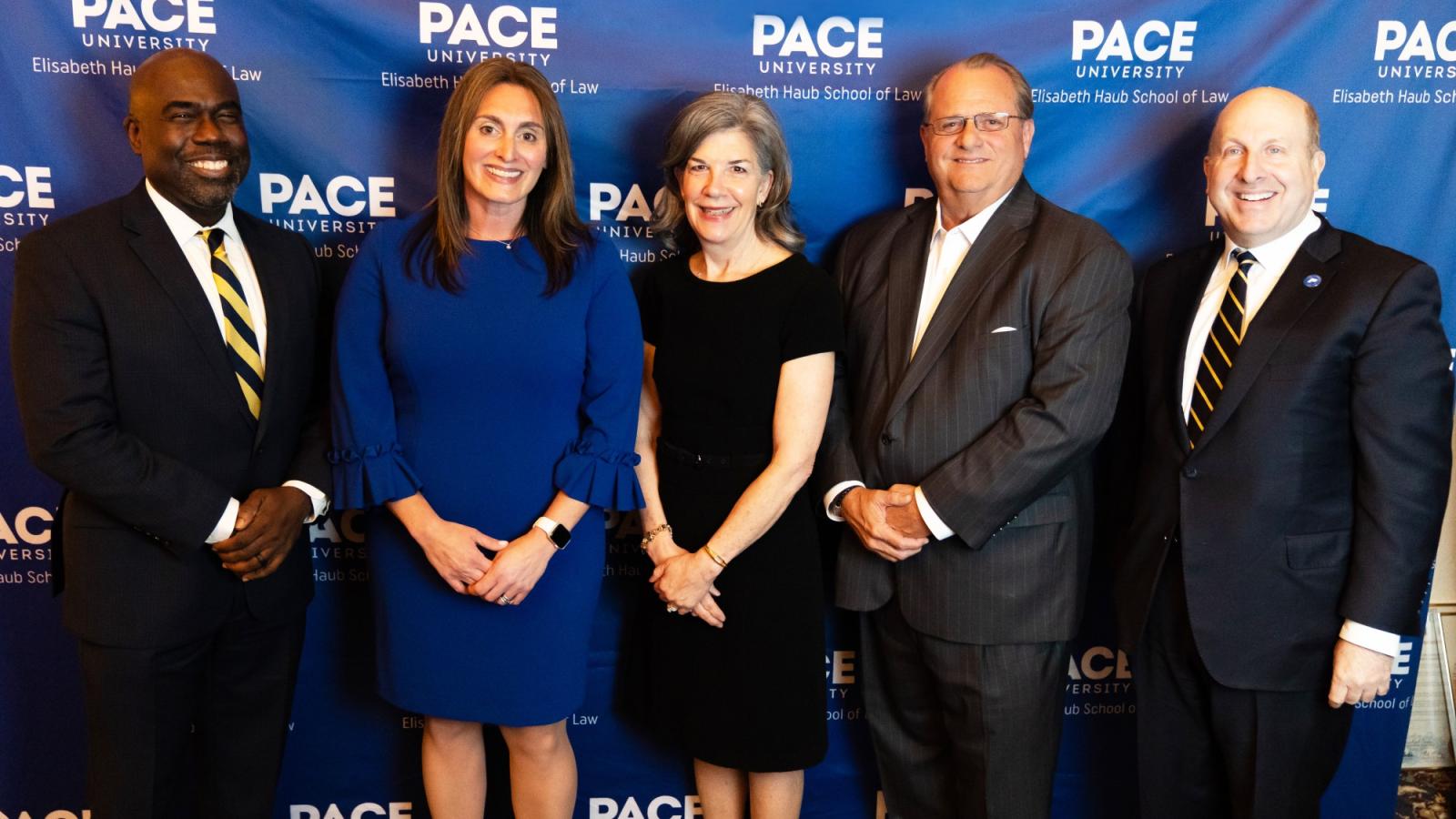
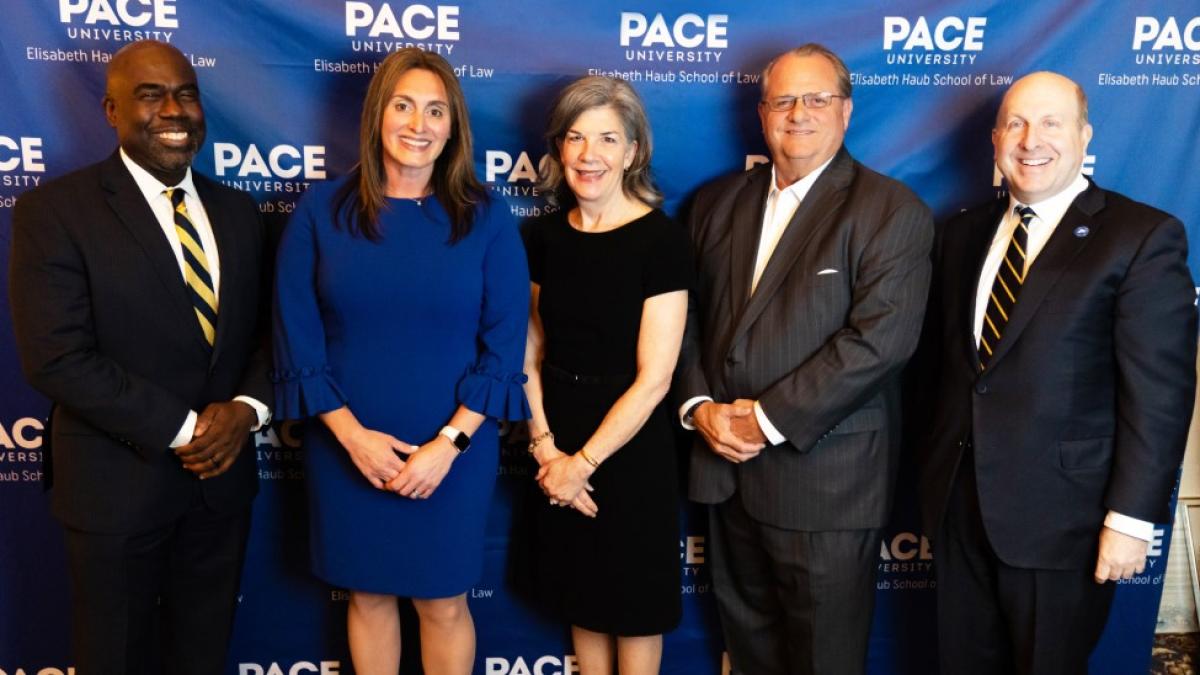
The Elisabeth Haub School of Law at Pace University honored three distinguished leaders of the legal community, as well as outstanding alumni, during its 28th Annual Law Leadership Dinner, held at the Westchester Country Club on March 7, 2023. The celebration was one of the law school’s most successful fundraisers in history, raising vital funds in support of student scholarships, faculty research, and innovative programs.
The Law Leadership Dinner, first held in 1995, is the signature fundraiser for Haub Law and provides the setting for the presentation of the Distinguished Service Award, which honors individuals or organizations that have made outstanding contributions to the legal community, as well as the Rising Star Award, recognizing excellence in practice among alumni in the first 15 years after graduation. This year also marks the second year that Haub Law has awarded the Haub Impact Award to honor an individual who has made a lasting impact on the Haub Law community.
At this year’s Dinner, more than 200 alumni, faculty, students, elected officials and members of the judiciary, and distinguished lawyers attended the event, which was emceed by Board of Visitors member Paul Saunders, Distinguished Visitor from Practice, Georgetown University Law Center. Both Horace E. Anderson, Jr., Dean of the Elisabeth Haub School of Law and Pace University President Marvin Krislov, gave remarks, speaking of the important role that Pace University and the Law School play in supporting our communities, producing leaders, and making a difference.
The 2023 Distinguished Service Award was presented to Susan S. Brown JD '87, Co-Founder, Of Counsel, Glassman & Brown, LLP, and to Anna Marciano Romanella JD '00 VP, Sustainability Zone North America Nestle, General Counsel & Head of Sustainability Nespresso USA. The Haub Impact Award was presented John T. O'Connor JD '86, Partner, Hunton Andrews Kurth LLP. The Dinner was co-chaired by last year’s Distinguished Service Award Recipient, Mayo Bartlett ’92 and the inaugural Haub Impact Award recipient John C. Lettera ’99.
Lisa Dalfonso, Senior Vice President and Assistant General Counsel of Keurig Dr. Pepper Inc., presented the Distinguished Service Award to Anna Marciano Romanella. During her remarks, Ms. Dalfonso spoke of Anna’s “thirst for knowledge and compassion to be of service for others,” along with her “sincere empathy and unparalleled ethics.” A member of the Advisory Board of the Sustainable Business Law Hub at Elisabeth Haub School of Law, Anna Marciano Romanella is VP, Sustainability Zone North America Nestle, General Counsel & Head of Sustainability, Nespresso USA. Since joining Nestlé five years ago, Anna has advanced the company’s sustainability commitments while helping deliver more sustainable solutions for their customers and consumers. “A proud alumni of Pace, Anna has raised funds, lent her voice, and volunteered to benefit Pace and its students,” remarked Dalfonso.
Carla D. Glassman, a Haub Law graduate and Co-founder of Glassman & Brown, LLP, who now serves as Of Counsel to the law firm, presented the Distinguished Service Award to Susan S. Brown. During her remarks, Ms. Glassman described Susan Brown as a bar association leader and a philanthropist, among much more. “Susan is a zealous advocate who always advocated as hard for the client who couldn’t pay a fee as she did for the one who could,” said Ms. Glassman. A founding member of the law firm Glassman & Brown, LLP, Susan is Counsel to the firm where she practices primarily in the areas of Guardianship, Elder Law, and Estates and Trusts. Over the course of her career, Susan has built strong professional relationships throughout the Westchester County legal community, serving as the immediate past President of the Board of the Westchester Women’s Bar Association Foundation. Previously, she has also served as a Vice President of the Westchester Women’s Bar Association and as co-chair of its Estates and Trusts Committee.
John T. O’Connor was presented with the Haub Impact Award by alumnus John C. Lettera. Mr. Lettera noted that “John’s lawyering skills speak for themselves.” He continued describing John as an avid listener, who is very involved in pro bono work and with charities, with a “unique way of inspiring young lawyers how to think rather than what to think,” and someone who believes in the power of higher education as the foundation to a productive and successful career. John T. O’Connor is a Partner with Hunton Andrews Kurth LLP and has more than 30 years of experience counseling clients on mergers and acquisitions, private equity transactions, equity financings, and general corporate matters. His practice primarily involves representing corporate issuers and private equity investors in the technology and retail and consumer products sectors and has represented clients in the energy and financial services sectors in a broad range of domestic and cross-border transactions and bankruptcy-related mergers and acquisitions.
An early highlight of the dinner was the presentation of the Rising Star Award to: Jonathan Campozano '17, Staff Attorney, Neighbors Link Community Law Practice; Hana Heineken '10, Attorney, ClientEarth; Najia Khalid '09, Partner, Wiggin and Dana LLP; and Shamik N. Trivedi '08, Special Counsel, Internal Revenue Service’s Office of Chief Counsel.
Dean Horace Anderson noted the importance of the presentation of the Rising Star Award. “These four successful alumni represent what the Haub Law mission is all about. These individuals have already demonstrated their leadership in the profession and a commitment to giving back. We are proud to call them Haub Law alumni and are confident that they will leave a lasting influence on not just the legal community, but far beyond it.”
The 2023 Law Leadership Awards Dinner was made possible in large part to a number of generous sponsors, which you can view in the event program.
Embracing Opportunities to Influence, Becoming a Student Advocate
Peruvian and first-generation graduate Lauren Cordova, PA-S, ’22, is making a place at the table for herself and other students in underserved populations. She chose the Physician Assistant (PA) Pleasantville program in the College of Health Professions (CHP) because of the emphasis on cultural sensitivity, community service, and diversity and that it teaches the importance of representation in healthcare.

Peruvian and first-generation graduate Lauren Cordova, PA-S, ’22, is making a place at the table for herself and other students in underserved populations. She chose the Physician Assistant (PA) Pleasantville program in the College of Health Professions (CHP) because of the emphasis on cultural sensitivity, community service, and diversity and that it teaches the importance of representation in healthcare. “After my interview, I knew that I would be supported during my time here and would have multiple opportunities during my clinical year,” said Lauren.

As a student in the program, Lauren was given a membership to the New York State Society of Physician Assistants (NYSSPA). She took advantage of this opportunity and began attending their webinars because she believes it is important to learn outside of the classroom to become a well-rounded PA. She was then appointed student director for NYSSPA to serve as a student representative, partnering with two students from other New York State PA programs. Lauren was most passionate about speaking for the student perspective in board meetings. She was also responsible for sending communications to students in New York PA programs about scholarship opportunities and legislative updates as well as gathering contact information from each student society throughout the state. She hopes to continue to advocate with NYSSPA in her future workplace and utilize what she has learned to give more opportunities to others.
Lauren was also selected to serve on the CHP search committee for the new Health Science program chair. “I thought it was important that the students feel supported by the selected candidate and that there was someone who was active in advancing our learning resources, whether that be rotation sites, mentorships, or scholarship opportunities,” she said. “This was my opportunity to use my student voice.”
“As a first-generation, Peruvian PA student, I know that I cannot always wait to be invited to the discussion and that I must pull a chair up to the table and make the changes that I want to see happen. I am someone that always wants to be involved in whatever organization I am a part of,” said Lauren. Working for these organizations enhanced her education and taught her that everything in life is a learning experience, “it reminded me that it’s okay to be uncomfortable but to know your limitations.”
Since graduating in December 2022, Lauren has been studying for the Physician Assistant National Certifying Exam (PANCE) and will be taking a trip to Thailand with her peers from the PA Pleasantville program. She is excited to begin her career as a cardiothoracic surgery PA and eager to continue to be a voice for the PA community and a mentor to future PA students.
More from pace
Nothing describes a #Go-Getter better then Pace University’s College of Health Professions (CHP) Lenox Hill Hospital Physician Assistant Program (PA-NYC) graduates.
"You have to find that passion every day," says College of Health Professions alumna Tyra Prophete, RN. "I always knew I wanted to advocate for people."
Commencement 2023 just got 5x more exciting! This May, the Class of 2023 will celebrate with a creative genius and fashion entrepreneur, an intrepid US Senator, a renowned legal scholar, a former CEO of the largest telcom company in the US, and a nonprofit leader dedicated to justice and equality.
Joseph R. Franco, PhD, Named Pace University Provost
Following a national search, Joseph R. Franco, Ph.D., has been appointed provost and executive vice president for academic affairs at Pace University, the University announced on Wednesday.

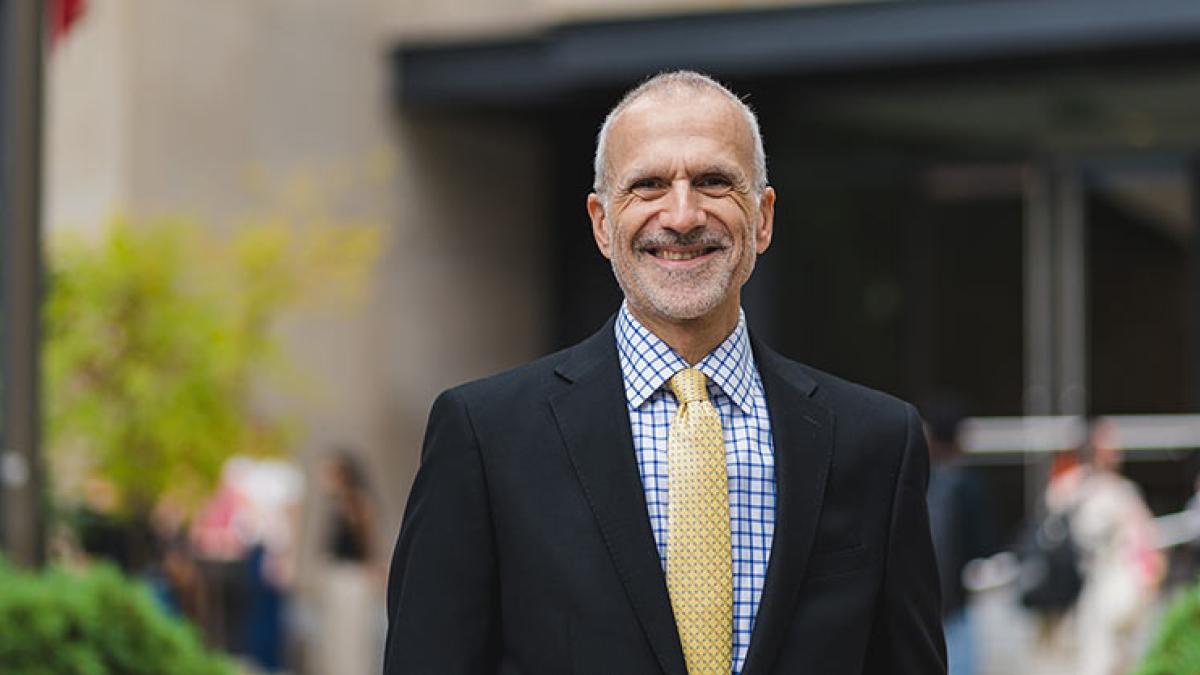
Franco, a nationally licensed mental health counselor and clinical supervisor, has served in faculty and leadership roles at Pace for 36 years
Following a national search, Joseph R. Franco, Ph.D., has been appointed provost and executive vice president for academic affairs at Pace University, the University announced on Wednesday.
Franco, a nationally licensed mental health counselor and clinical supervisor, has held an impressive array of leadership and faculty roles during his distinguished 36-year tenure at Pace University. Most recently, he served as interim provost since August following the departure of Vanya Quiñones, Ph.D., who became president of California State University, Monterey Bay.
“Pace University has a proud tradition of creating opportunities for its students, and Dr. Franco embodies that mission,” said Pace President Marvin Krislov. “He has proven himself to be not only a collegial and compassionate leader but also someone deeply committed to the success of everyone in our Pace Community—our students, our staff, and our faculty. It is clear he brings to this role wisdom, experience, and a deep well of respect across the institution. I am very excited to continue to work with Joe, and eager to build on his successes at Pace.”
During his more than three decades at Pace, Franco has served in a variety of capacities. Prior to serving as interim provost, he was an associate provost for academic affairs since December 2021. A member of the Pace faculty since 1987, he is a full professor in the Psychology and Mental Health Counseling Department on the Pleasantville Campus, and he has served as senior associate dean for Dyson College of Arts and Sciences as well as chair of the Westchester Faculty Council, among many other leadership roles.
“As a first-generation student, I understand Pace’s mission of Opportunitas and believe that the university continues to open doors and provide life-changing opportunities for its students, faculty, and staff,” Franco said. “I’m honored to serve Pace in this capacity, and excited about the important work we continue to do here across all of our campuses.”
Franco has taught on the undergraduate, graduate, and doctoral levels, and he has served as program director and director of clinical field supervision for the master’s of science program in Mental Health Counseling. In 2021, Franco was honored with our Jefferson Award for Public Service. He is also a practicing clinician who is a licensed mental health counselor, a nationally certified counselor, and a past downstate president for the New York Association for Counselor Education and Supervision.
A native New Yorker, he holds a B.S. in psychology from Mercy College, two M.S. degrees from Long Island University, and an M.Phil and Ph.D. from the CUNY Graduate Center.
Franco’s appointment comes at an exciting time for Pace University. The University is adding or revamping programs at Pace, mostly on the graduate level, to reflect market needs and demands and making significant investments in science labs, health care simulation labs, and classroom space. The university also recently announced plans for the transformation of One Pace Plaza, its central building in lower Manhattan, to include new academic spaces, a modernized residence hall, and a new state-of-the-art Performing Arts Center that will serve its performing and creative arts programs.
About Pace University
Pace University has a proud history of preparing its diverse student body for a lifetime of professional success as a result of its unique program that combines rigorous academics and real-world experiences. Pace is ranked the #1 private, four-year college in the nation for upward economic mobility by Harvard University’s Opportunity Insights, evidence of the transformative education the University provides. From its beginnings as an accounting school in 1906, Pace has grown to three campuses, enrolling 13,000 students in bachelor’s, master’s, and doctoral programs in more than 150 majors and programs, across a range of disciplines: arts, sciences, business, health care, technology, law, education, and more. The university also has one of the most competitive performing arts programs in the country. Pace has a signature, newly renovated campus in New York City, located in the heart of vibrant Lower Manhattan, next to Wall Street and City Hall, and two campuses in Westchester County, New York: a 200-acre picturesque Pleasantville Campus and the Elisabeth Haub School of Law in White Plains.
Pace Professor Receives NSF Grant to Develop Touchless Smart Glasses
Pace University Seidenberg School of CSIS Professor Zhan Zhang, PhD, recently received a $499,966 grant from the National Science Foundation (NSF) to develop touchless smart glasses that will allow emergency care professionals to collect data, communicate with other specialists, and pull up medical protocol checklists with a gesture of the head or through voice controls. They’ll no longer need to take their hands—or their eyes—off the patient or risk transferring germs to and from a computer keyboard.
Live the Legacy Podcast - Andrew Goodman Foundation
Hayley Piazza, a sophomore Health Science major at Pace University was interviewed about her work to support student voters at Pace. Hayley has been working with CCAR since her first semester. Hayley discusses her passion for getting STEM students civically engaged. She also discusses her and her peer's reactions to climate change, the lack of gun control laws, and safe access to reproductive services.
"Didn't Do It": 34 Times Kids Were Caught In The Act But Still Denied Any Responsibility
Internet users shared the most confusing and hair-pulling examples of kids doing things they really shouldn’t have. We also reached out to Brenna Hassinger-Das, Assistant Professor of Psychology at Pace University-NYC to learn a bit more about children’s creativity. So scroll down and upvote the stories that made you feel happy it wasn’t your kid and comment if you have any tales of your own.
Department of Justice
“If they look at the nypd, what they are going to look at are the arrest statistics, the number of complaints, such as civilian complaints, internal affairs complaints, excessive force that was applied officers within the department,” Darrin Porcher. Pace University Professor and former NYPD Lieutenant Darrin Porcher says it's still unclear if the justice department will include the NYPD in its new review of specialized police units.
Matty Healy, Morgan Wallen and when your favorite artist shares racist, hateful views
"These instances are simply the latest chapters in the recurrent global novel of white men publicly exhibiting racist behaviors and being positively rewarded," says Melvin Williams, associate professor of communication and media studies at Pace University.
